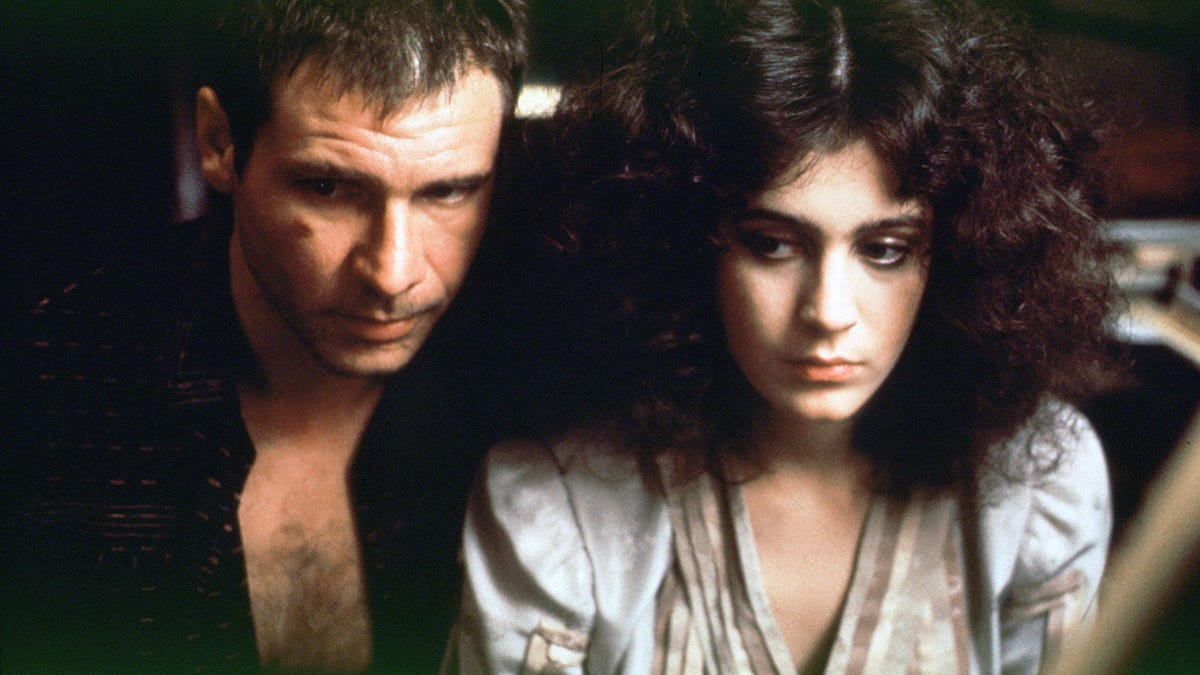'Blade Runner' original source story even more relevant now
Commentary: With "Blade Runner 2049" hitting theaters, I returned to the 1968 Philip K. Dick novel that inspired the original film and was struck by its prescience.

To some, the words science fiction mean discovery -- an imagined superior future, full of hope, exploration and strange new worlds. For others, they conjure images of space warfare or interplanetary feuds, with good overcoming evil, or evil crushing good, in a grand space opera replete with lasers and lightsabers.
To Philip K. Dick, science fiction meant so much more. The late author of more than 40 novels and 100 short stories saw sci-fi not only as entertainment but as a subversive medium. Though Dick's approach to the genre changed throughout his lifetime -- he didn't like the idea of sci-fi being narrowly defined -- his work, particularly in his later years, evolved into a philosophical, almost mystical platform, often exploring the nature of god, identity and truth.
Philip K. Dick, pictured in December 1982. Critic Fredric Jameson famously called the author "science fiction's Shakespeare."
And that's what makes Dick so special. He pushed sci-fi beyond the boundaries of its category while staying true to its popular motifs and tropes. With "Blade Runner 2049" debuting in theaters worldwide Oct. 5, it's a good time to re-read "Do Androids Dream of Electric Sheep?" the novel that inspired the original "Blade Runner".
Its themes remain strikingly relevant, even though the book is nearly five decades old. Once you look past the hover cars, infinity keys and nondirectional penfield wave transmitters (as cool as they are), important and timeless questions surface about empathy, identity and what it means to be alive.
How do you determine what's true or false? Human or non-human? And how should you behave, based on this determination? These questions fascinated Dick, and they permeate his 1968 novel.
Andy's, the slang term for androids, may look and act real. But they aren't human. Indeed, some have suggested the Rosen Corporation is a metaphor for the dehumanisation of bureaucracy and technology. There's no sense in caring about these almost-humans, Rosen says. They're not worth your humanity.
But if it looks and behaves like a human, shouldn't it be treated like one? Dick's protaganist Rick Deckard battles with this question when he's disturbed by the grief he feels for Luba Luft, an opera-singing android killed in cold blood by Phil Resch, another bounty hunter. The same is true for Rachel Rosen, the android femme fatale, for whom Deckard feels great affection, possibly even love.
This dilemma, one of the main themes of the novel and Ridley Scott's 1982 film starring Harrison Ford, brings with it an implied fear of tech. How do we stop technological advancement from being detrimental to humankind without limiting progress? It's a question being debated now as the real world approaches an eerily similar vision of the future.
Dick imagined a society in which individuals had to tackle the moral complications of an artificial intelligence demanding the right to self-determination. Elon Musk, one of the most high-profile technophiles in the world, has voiced concerns that robots might kill us all in five years. And yet with AI-enabled sexbots making their way into our beds and a new study suggesting sex with robots will be common by 2067, some are already asking: Can you rape a robot?
But back to Deckard. It's his empathetic response to the fear of tech's reach that sticks with me. In fact, empathy is what the book is really about. The word itself is mentioned 42 times and its importance is foreshadowed in the first few pages, when Deckard's neighbour reminds him of the honour in living a life true to Mercerism.
For those who've seen the film but haven't read the novel, the book's prevailing religion was founded by a man called Wilbur Mercer. Mercerism's main purpose is to unite humanity. There are two simple principles to the faith: working toward the greater good and feeling compassion toward others.
Worshipers of Mercer don't pray. Instead they use mood organs to "fuse" with Mercer himself as he perpetually climbs a hill while being pelted with rocks.
Will "Blade Runner 2049" once again tackle the book's complex questions of what it means to be human?
Dick is setting us up to empathise with the "other," to examine our prejudices and preconceptions around that which we believe to be alien, strange or unknown.
Take the most pitiful character in the novel, John Isidore. He lives alone in San Francisco as a chickenhead, also known as a "special." Specials were affected by the radioactive fallout following World War Terminus so that their mental faculties have begun to diminish.
Because of this status, Isidore isn't permitted to leave Earth and join the rest of humanity in resettling on Mars. Instead, here he must stay. Deserted, forgotten, less than human.
Sound familiar? Isidore, a foreigner, is refused emigration rights because he may bring with him problems a more prosperous society doesn't want to deal with.
With today's heated debates over Brexit, US President Donald Trump's border wall and the thousands of migrants perishing in search of a new life in Europe, "Do Androids Dream of Electric Sheep?" has never felt more pertinent.
That's why the book moved me now more than it did when I first read it over a decade ago. It still has so much to teach us about what it means to be human. And it reminds us of the many lessons humanity has failed to learn.
Crowd Control: A crowdsourced science fiction novel written by CNET readers.
Batteries Not Included: The CNET team shares experiences that remind us why tech stuff is cool.

